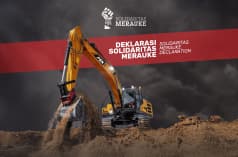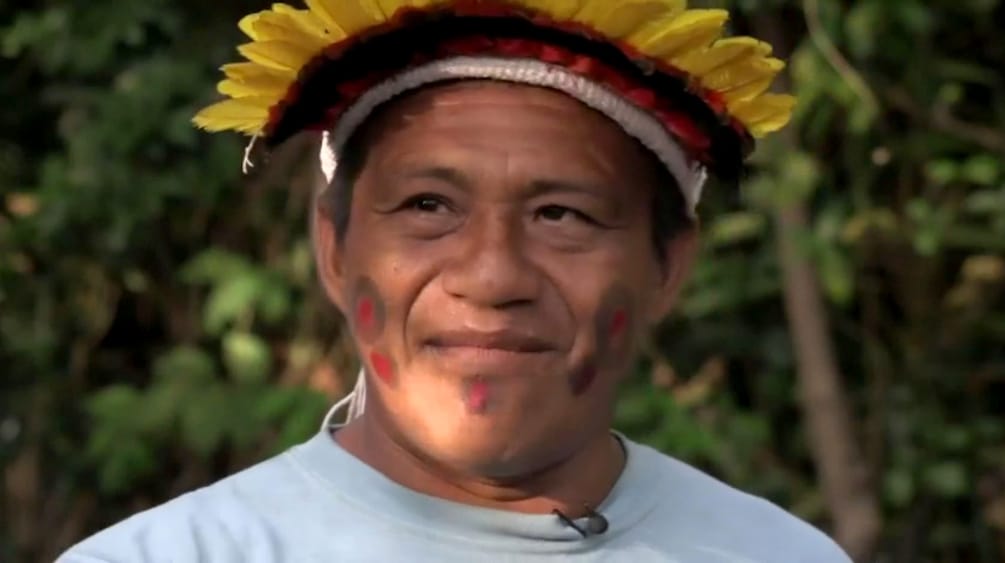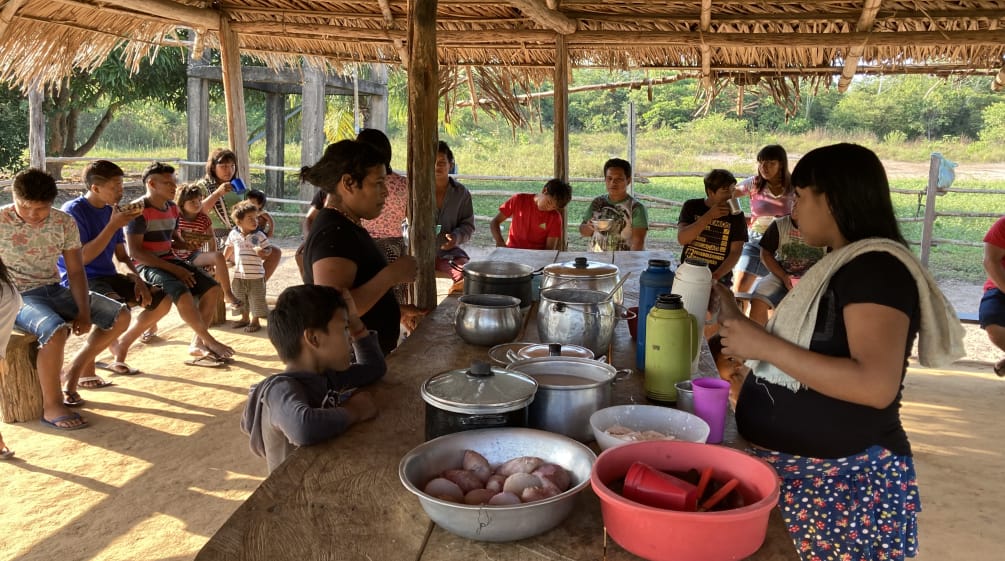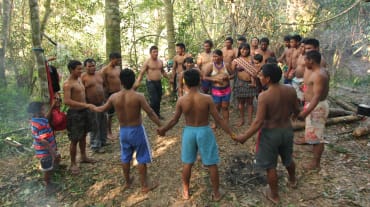Putting their lives on the line: Indigenous people and environmentalists in danger
Sep 15, 2023
Our consumption of agricultural commodities, metals, minerals and timber is taking a heavy toll on people in the global South: In 2022, at least 177 activists were killed for defending their land rights and protecting nature. More than a third of the victims were Indigenous people, including our partner Sarapo Kaapor in Brazil.
The British-American NGO Global Witness has published its annual report, titled “Standing Firm”, on the threats that Indigenous people, environmentalists and human rights activists face worldwide.
According to the report, at least 177 activists were murdered worldwide in 2022. More than one third (64) of them were Indigenous people.
As in previous years, the hotspot of violence is Latin America, with Colombia (60 killings) leading the way, followed by Brazil (34), Mexico (31) and Honduras (14), and in Asia, the Philippines (11).
The figures presented by Global Witness present only an incomplete picture of the extent of killings of land and environmental activists around the world in 2022, as the NGO explains in the report:
“We also acknowledge that the names of many defenders who were killed last year may be missing, and we may never know how many more gave their lives to protect our planet.”
Global Witness’ statistics thus only represent the tip of the iceberg of violence, as the Indigenous peoples’ council CIMI documents in its detailed report on violence against Indigenous people in Brazil for the year 2022. For Brazil alone, CIMI lists 180 murders of Indigenous people due to land and resource conflicts.
All of these people died violently – and many more were threatened, beaten, abducted, displaced or criminalized – because they were actively committed to protecting their land, their communities and the environment. The perpetrators and their backers – unscrupulous landowners, politicians and companies – all too often do not shy away from murder. They know that such crimes are generally not investigated with any great conviction by the authorities.
One of the victims was Indigenous leader Sarapo Kaapor. A partner of our organization, he led his people in defending the officially recognized rainforest land of the Ka’apor. Their 531,000-hectare Alto Turiaçu territory – an area more than three times the size of Greater London – is the scene of vast biodiversity, including many endemic animal and plant species.
With their nature-friendly way of life, the Ka’apor have preserved the last large rainforest area in northeastern Amazonia. Yet cattle ranchers, soy planters, loggers and mining companies have an eye on the land and its natural resources, and pose a massive threat to the Ka’apor. Drug cartels also invest in such activities to launder drug money.
In the case of the Ka’apor, most of the murders were linked to the expansion of agribusiness, mining and logging – and often had the tacit approval of the authorities. President Bolsonaro’s government, which was voted out at the end of 2022 and was supported by parts of the judiciary, parliament and other sectors, considered crimes against minorities and nature as the price for economic growth, CIMI writes in the report.
For the past three years, Rainforest Rescue has been supporting the Ka’apor with fundraising, campaigning and networking. To push the authorities into investigating the murder, we launched the petition “Brazil: The Ka'apor people need our support” in coordination with the Indigenous people. The petition was signed nearly 80,000 times.
Global Witness 2023. Standing firm: https://www.globalwitness.org/en/campaigns/environmental-activists/standing-firm/
detailed reportCIMI 2023. Violência contra os povos indígenas no brasil 2022: https://cimi.org.br/2023/07/relatorioviolencia2022/













